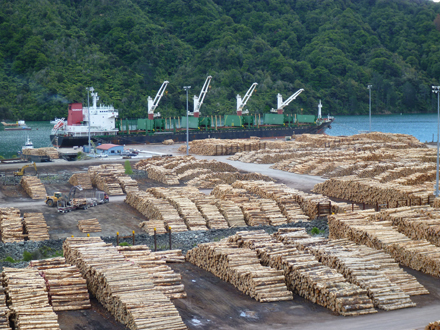
NZ Future Forest Products (NZFFP) believes that New Zealand is perfectly positioned to supply the rapidly urbanising Asia-Pacific region with the construction materials needed to house the world’s population in a low carbon future and so it will invest NZ$900 million to prove it. Source: Timberbiz
Three billion people will need affordable housing in South East Asia, according to a recent United Nations report and the NZFFP sees this as a way to create a new export market for New Zealand engineered timber solutions.
According to the NZFFP, New Zealand has geographic advantages for forestry combined with multi-generational industrial expertise in wood products and access to the growing Asia-Pacific export markets. The association intends to leverage these advantages to build the largest commercial-scale engineered timber complex in the Southern Hemisphere.
“In New Zealand, we are uniquely positioned to export high-value engineered timber modules that will reduce the carbon footprint of the global construction industry,”
NZFFP director, David Henry said.
“As New Zealanders, we lead the world in our commitment to being green. We’re also on the doorstep of the world’s fastest growing economies in South-East Asia and benefit from one of the world’s most productive sustainable softwood timber plantations.”
Mr Henry said that the NZFFP is committed to keeping technology onshore and investing in manufacturing and wood supply chains in the region to grow jobs, support communities and export high-value finished products. This is the NZFFP’s “Forest2Frame” business model.
Mr Henry said the NZFFP will deliver ‘turn-key’ engineered timber modules to enable accelerated construction of mid-rise housing developments. This will reduce global carbon emissions while also turning cities into long-term carbon storage over time.
“I work on renewable energy and climate change issues around the world. I was keen to join the board because of NZFFP’s practical embrace of technological innovation to cut emissions while at the same time creating new jobs benefitting New Zealand’s regional communities,” NZFFP director Mike Rann said.
“NZFFP will not only plant countless millions of trees but will create an innovative Kiwi export industry for the future. Our vision matches the ambition of New Zealand to prove to the world that our green credentials can be reinforced by a clean, value adding industry that generates jobs at home.”
Through collaborating with existing New Zealand wood processors to expand their capacity and developing mutually beneficial partnerships with Iwi, NZFFP will invest for the long-term.
Afforestation and infrastructure investments supported by NZFFP are anticipated to drive significant regional economic development and job creation, reinvigorating the value chain from forest planters and silviculture professionals to architects and digital designers/manufacturers.





